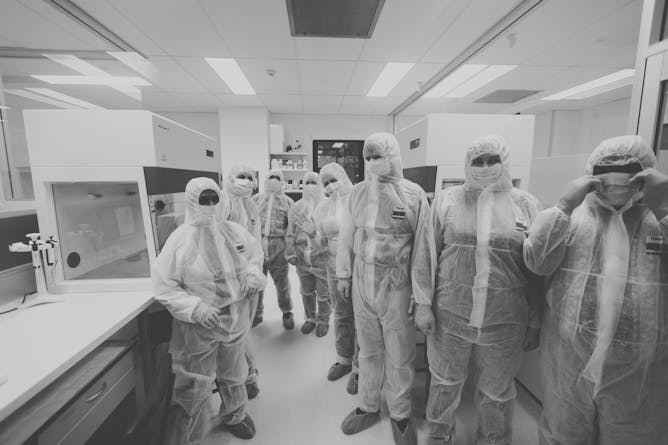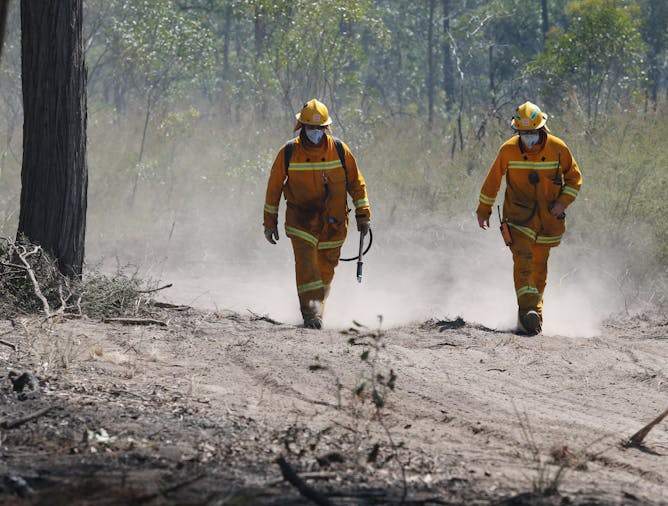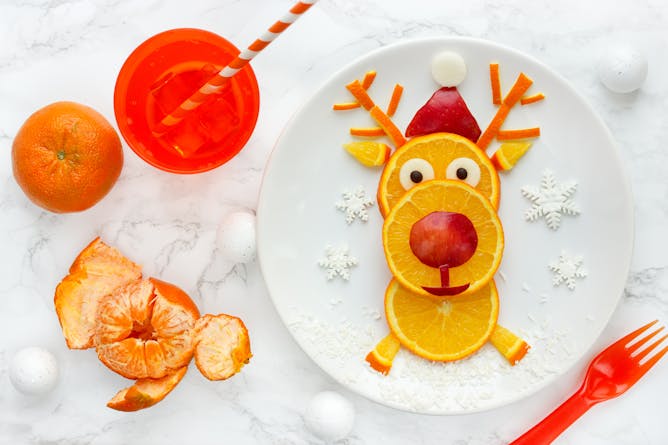Editor's note
|
|
In museums across Australia and the world lie the remains of Indigenous Australians. In the early days of colonial Australia, these were often taken from burial sites and sold with no record of the location nor affiliation with a particular cultural group. Without knowledge of Country.
Today Joanne Wright and her colleagues describe their work to create an accurate DNA-based method for matching unprovenanced human remains with their living ancestors. Conducted in close consultation with Indigenous Australians, this is a first step towards a reliable, trusted way to return ancient people to Country.
The State of the Climate 2018 report, the latest biennial summary from the Bureau of Meteorology and CSIRO, reveals Australia is feeling the impacts of climate change in the form of worsening heatwaves, dangerous fire and drought conditions, coastal flooding, and extreme sea temperatures such as those that damaged the Great Barrier Reef in 2016-17.
|
Sarah Keenihan
Section Editor: Science + Technology
|

|
|
Top story
|

Indigenous Australians must be involved in research around provenance and country. Here, representatives of the Willandra Aboriginal Elders visit the Griffith University ancient DNA laboratory.
Renee Chapman
Joanne Wright, Griffith University; David Lambert, Griffith University; Sally Wasef, Griffith University
Museums around the world hold remains of Aboriginal people that were often taken without permission and in the absence of accurate records. New DNA methods may help return these items to country.
|

Fire danger conditions are worsening in many areas of Australia.
AAP Image/David Crosling
Michael Grose, CSIRO; Lynette Bettio, Australian Bureau of Meteorology
Australia is facing an increase in extreme heat, fire danger weather, floods and marine heatwaves, according to the latest biennial snapshot from the Bureau of Meteorology and CSIRO.
|

You don’t have to miss out on Christmas celebrations.
Shutterstock
Clare Collins, University of Newcastle
If you’re not a fan of plum pudding or pork with crackling, why not swap them for something healthier, like prawns and fresh fruit salad?
|
Science + Technology
|
-
Anthony Dosseto, University of Wollongong; Alexander Young, University of Wollongong; Nicolas Flament, University of Wollongong
Although often separated as two unique subjects in science, geology and biology have been intricately intertwined since life on Earth first evolved billions of years ago.
|
|
Health + Medicine
|
-
Paul Martin, University of Sydney
Some colour blind people only have two kinds of cone cell in their eye. Others have three kinds, but the cones do not pick up the same light waves as the cone cells in most people's eyes do.
|
|
Politics + Society
|
-
Arie Freiberg, Monash University; Lorana Bartels, University of Canberra
Under new WA legislation, the state's attorney-general has the power to order serial killers and mass murders remain in jail, sometimes without judicial review.
|
|
Arts + Culture
|
-
Emily Gallagher, Australian National University
Folklore is everywhere and a valuable part of our national heritage. But it is undervalued by our government.
|
|
Cities
|
-
Hannah Robertson, Monash University
Centralised policies are not meeting the needs of remote Indigenous settlements. Increasing their decision-making input and the role of local industry can overcome the challenges of building remotely.
|
|
Blog
|
-
Debbie Dickinson, The Conversation; Molly Glassey, The Conversation
As the year draws to a close, here at TC HQ we’ve taken some time to reflect on some of the successes of the past 12 months. As a not-for-profit that exists to inform public debate with knowledge-based…
|
|
Business + Economy
|
-
Joshua Newton, Deakin University
Many people become more forgiving of poor service if there are Christmas symbols around.
|
|
Education
|
-
Julie Hare, University of Melbourne
Authentic assessment is perceived as being harder to outsource, and has been adopted by many Australian university teachers. But that doesn't mean students won't still cheat on them.
|
|
| |
Featured jobs
|

|
University of Western Australia — Perth, Western Australia
|

|
La Trobe University — Melbourne, Victoria
|

|
RMIT University — Melbourne, Victoria
|

|
Western Sydney University — Kingswood, New South Wales
|
|
|
|
| |
| |
| |
| |
| |
|
|